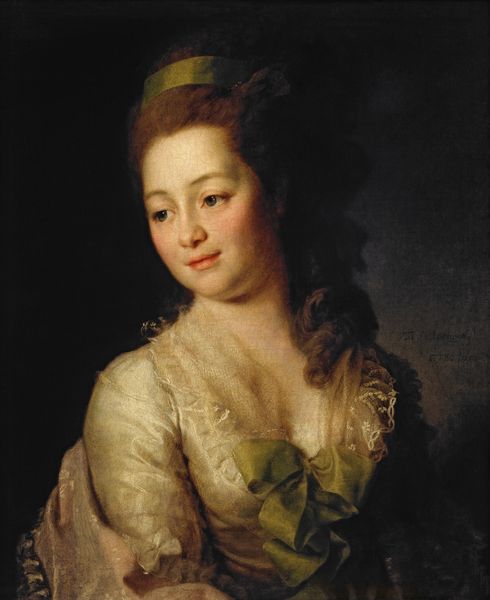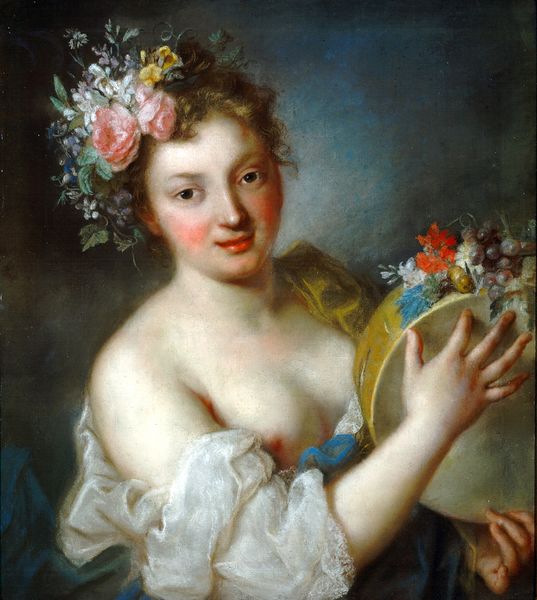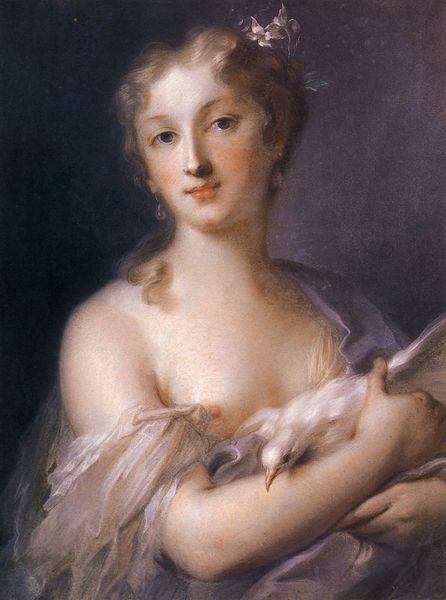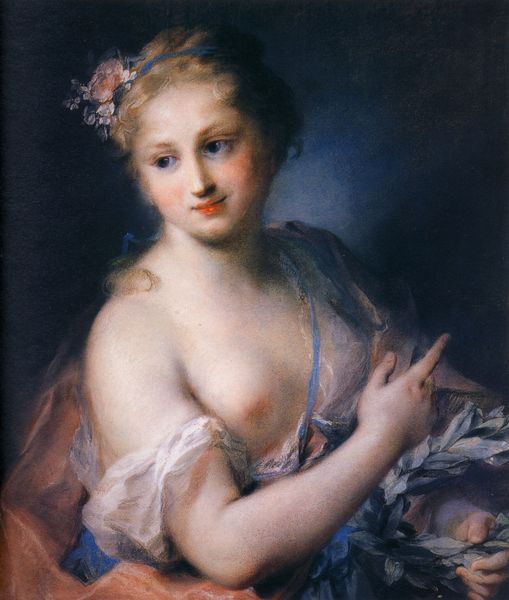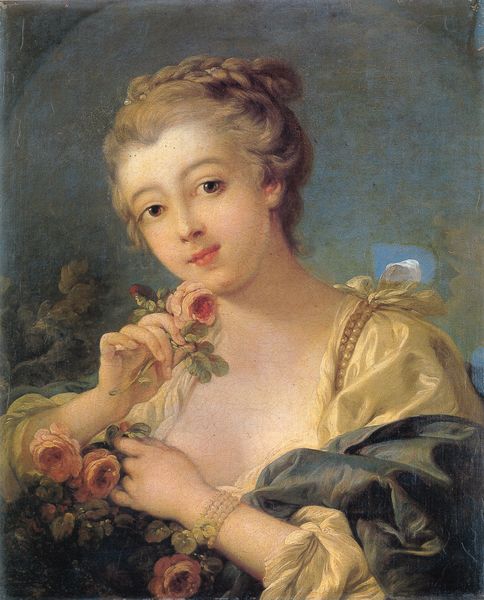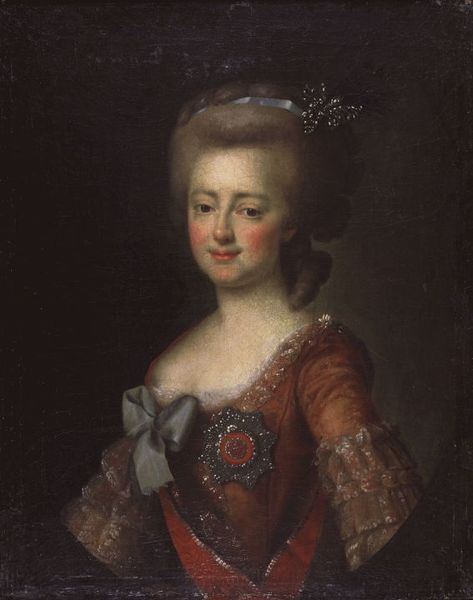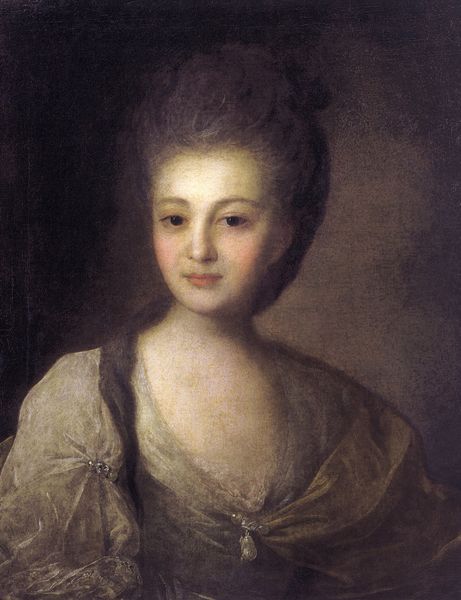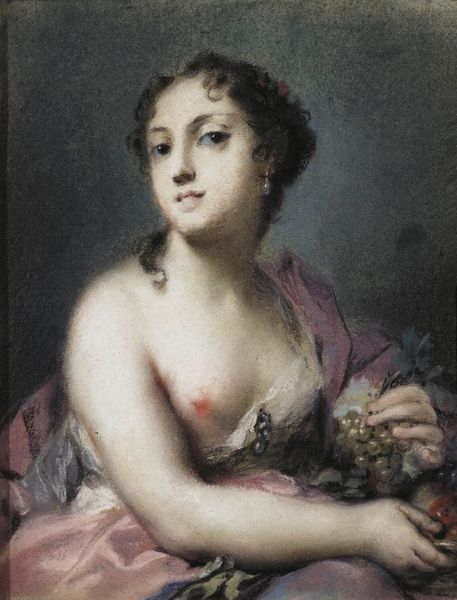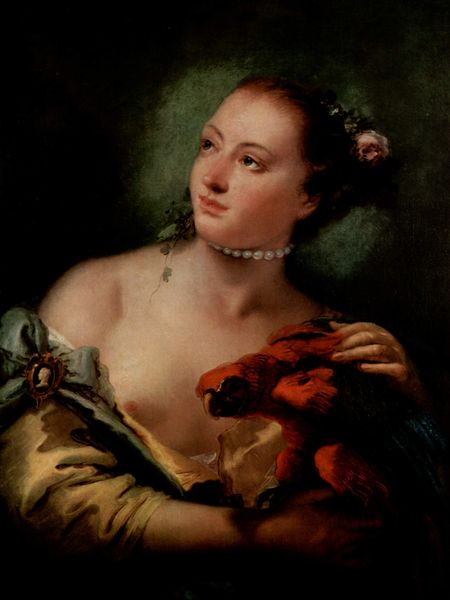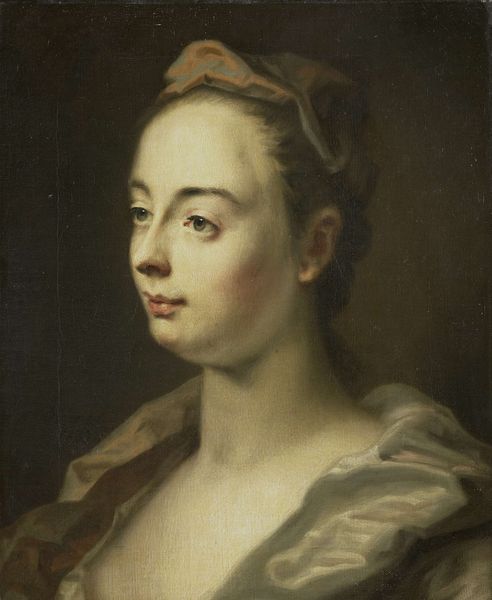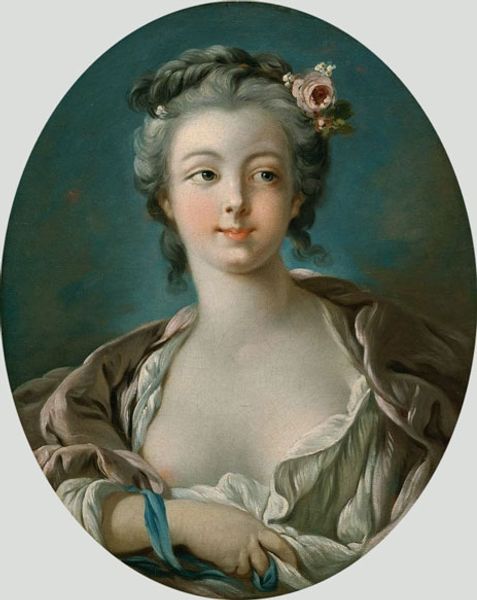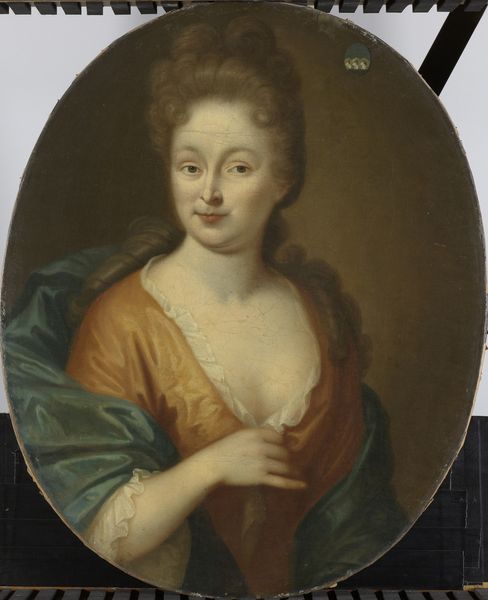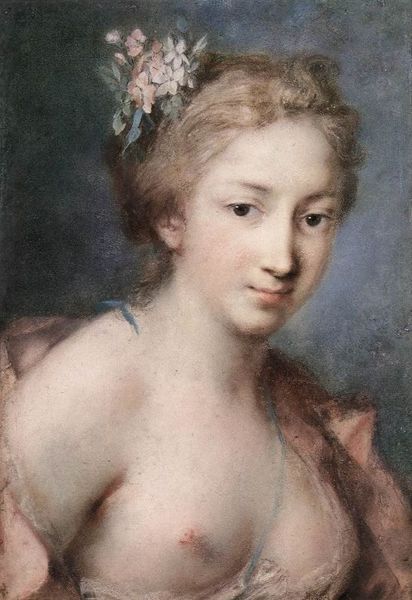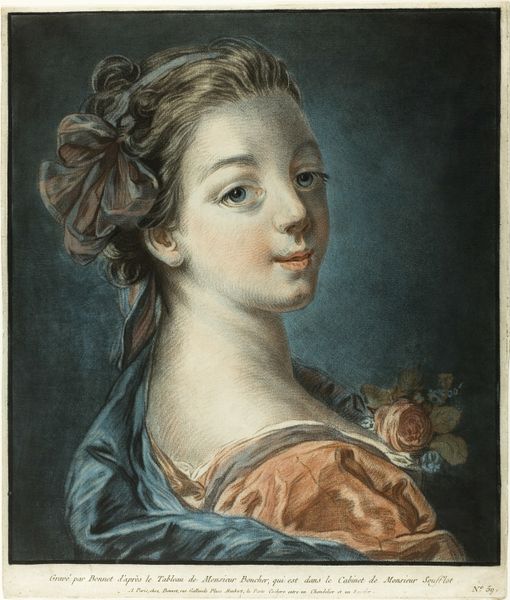
pastel
#
portrait
#
underpainting
#
mythology
#
pastel
#
nude
#
rococo
Copyright: Public domain
Maurice Quentin de la Tour created this pastel drawing of a Nymph followed by Apollo holding a laurel wreath in 18th century France. The woman's nudity and the classical reference were common ways for artists to allude to a world of aristocratic luxury. This particular artwork may have functioned as a type of symbolic messaging that upheld the status quo. The nymph-like woman and Apollo connect with the long-standing cultural association between beauty and authority. In the social and institutional context of the French court, such imagery could be seen as reinforcing ideals of power, grace, and classical learning which the aristocracy used to legitimize their power. The laurel wreath of Apollo may have subtly signaled the patron's power or status. Understanding the imagery of the 1700’s requires detailed research into the social rituals, power structures, and intellectual debates of the time. Social history helps us read beyond the surface and understand the complex conversations that art engages in.
Comments
No comments
Be the first to comment and join the conversation on the ultimate creative platform.
